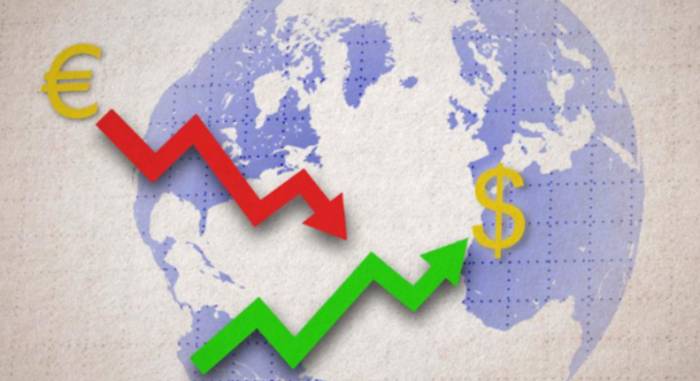Have you heard of the term "sudden changes in the weather"?
In the financial market, this phrase couldn't be more fitting.
Today, the Hong Kong stock market has welcomed a major transformation with the official implementation of a new rule that has set the entire market abuzz.
Imagine you're leisurely sitting in a café, sipping on a latte, when suddenly you overhear two suited "big shots" at the next table discussing something heatedly.
You prick up your ears and realize they're talking about the new regulations for the Hong Kong stock market.
Your interest is piqued, and you can't even wait to finish your coffee, quickly pulling out your phone to look it up.
Don't worry, let me explain this financial drama for you.
First, what exactly is this new rule?
In simple terms, it's a brand-new trading mechanism launched by the Hong Kong Stock Exchange, called the "closing auction session."
Sounds impressive, doesn't it?
But to put it plainly, it's just a new twist on the last few minutes before the stock market closes.
Imagine you're at an auction.
The auctioneer has already called out "third time" and is about to strike the hammer.
At this moment, you suddenly raise your paddle and shout out a higher price.
Bang!
The entire auction hall erupts into excitement.
That's the feeling of the closing auction, exciting, isn't it?
The introduction of this new rule is not just the Hong Kong Stock Exchange having nothing better to do.
You should know that before this, the Hong Kong stock market was criticized as "backward."
You might ask, why would they say that?
Let me explain slowly.
Among the world's major stock markets, Hong Kong is a unique existence.
Why do I say that?
Because before this, Hong Kong was the only major stock market without a closing auction mechanism.
You heard it right, it was the only one!
It's like being among a group of fashionably dressed friends, and you're the only one still wearing your grandfather's clothes, how awkward.
But from today on, this embarrassing situation has finally come to an end.
The Hong Kong stock market has finally caught up with the trend and joined the "fashion circle."
It's not just about looking good; more importantly, this new rule brings tangible benefits.
First, it can make the determination of stock prices more fair and reasonable.
Imagine you're shopping in a supermarket, and the cashier is about to close, and you rush over only to find that the cashier has already turned off the computer.
How frustrating!
But with this new rule, it's like the supermarket has given you one last chance to complete your shopping before closing.
Second, this new rule can also improve market liquidity.
In simple terms, it makes buying and selling stocks easier.
It's like applying "lubricant" to the stock market, making the entire trading process smoother.
However, the emergence of anything new will inevitably cause some controversy.
Some are happy, some are worried; it's the most normal thing in the world.
Some investors worry whether this new rule will make the stock market more volatile?
After all, in the last few minutes, stock prices may undergo dramatic changes.
But don't forget, change often means opportunity.
Think about it, if you can seize the opportunity at the last moment, you might be able to make a fortune!
Of course, risk and opportunity always go hand in hand, which requires investors to keep their eyes open and develop a pair of "golden eyes."
Speaking of which, you might ask, what impact does this new rule have on ordinary investors?
To be honest, the impact is huge!
First, it may change your trading habits.
Before, you might have been used to placing orders a few minutes before the market closes, but now you might need to wait a bit longer to see what happens during the closing auction session.
It's like you used to arrive at the airport half an hour early, but now you might need to consider waiting a bit longer to see if there are any last-minute deals.
Second, it may affect your investment strategy.
For example, if you are an investor who likes to chase rising stocks and sell falling ones, then this new rule may bring you more opportunities.
But at the same time, it may also increase your risk.
It's like playing an exciting car racing game, where the last lap is often the most thrilling and the most dangerous.
However, no matter what, the introduction of this new rule is undoubtedly an important milestone in the development of Hong Kong's financial market.
It signifies that the Hong Kong stock market has taken a big step towards a more modern and international direction.
Think about it, decades ago, Hong Kong was just a small fishing village.
Now, it has become a world-class financial center.
And the implementation of this new rule will undoubtedly make Hong Kong even more dazzling on the international financial stage.
Of course, the emergence of anything new requires a process of adaptation.
Just like when you first used a smartphone, you might have been flustered, market participants may also need some time to adapt to this new rule.
But as long as everyone works together, I believe it will soon become second nature.
Finally, let's summarize this new rule with an interesting metaphor.
If the stock market is an exciting football match, then this new rule is like adding injury time to the game.
In these few short minutes, there may be a decisive goal, there may be a reversal, in short, anything is possible!
So, dear investors, are you ready to embrace this financial "revolution"?
Fasten your seatbelts, let's witness this historic moment together!
Who knows, maybe in the near future, when we look back on today, we will find that this new rule has become a key step in changing the pattern of Hong Kong's financial market.
Anyway, change has begun, the future has arrived.
In this ever-changing financial world, the only constant is change itself.
So, let's keep an open mind, embrace change, and meet challenges.
Because, who knows, maybe the next opportunity to change the world is hidden in this new rule?






























Comments
Join the discussion